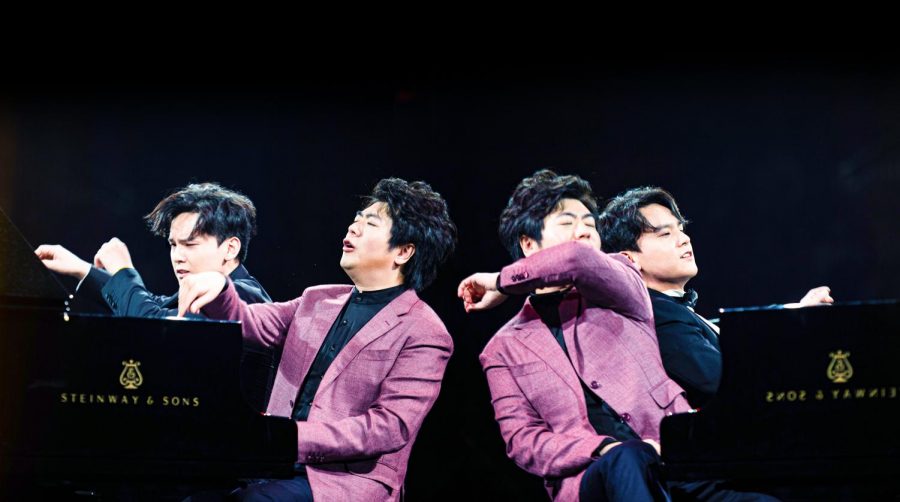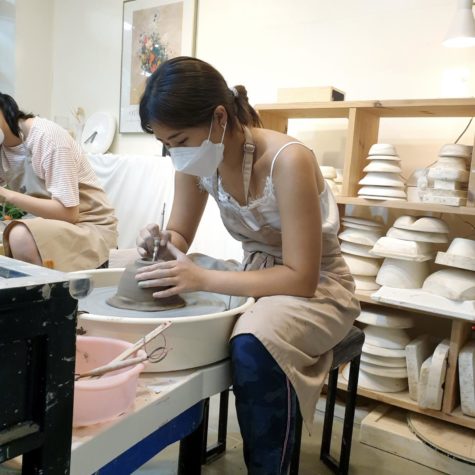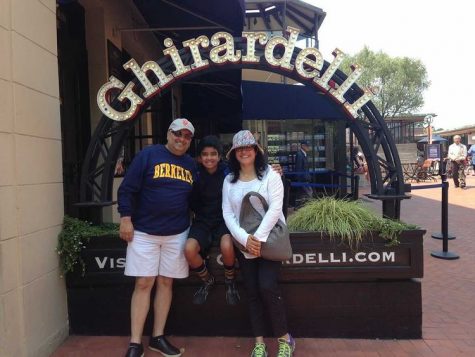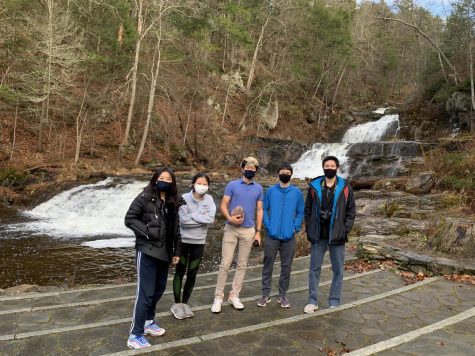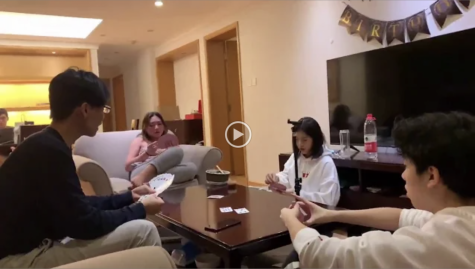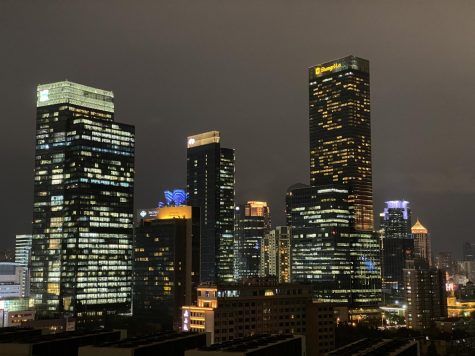Community Voices: Lost in Music
Oliver Chen ’22 plays a piano duet with Lang Lang last year.
Looking out the window, I gazed at the night sky lit up by colorful fireworks. Kids holding lanterns chased each other through the streets, their laughter echoing with the smell of traditional Chinese food from neighboring apartments. Every corner of the city was filled with joy and cheer on Chu Xi, the eve of Spring Festival.
“Focus!” shouted my Dad, and my wandering thoughts left the amiable atmosphere of the Spring Festival. Instead, I turned my head and forced myself to focus on my fingers, which were flying over the piano keys. I sat in front of a giant grand piano in a monumental room, as I have done daily since the age of five. I still felt tiny.
My dad is a famed successful businessman, known by many people as “Lao Chen” (Old Chen), a respectful yet intimate nickname. And naturally, they know me as the son of Lao Chen. On the day that I was born, Lao Chen placed a grand piano in the middle of the living room. The sleek Western piano seemed so out of place under the ceiling supported and decorated by traditional Chinese red wooden pillars and walls covered by murals with carved flying dragons and phoenix.
Lao Chen didn’t know music. Like many successful Chinese men who grew up as peasants in the 1970s, he spent his entire life earning a living, later luckily making wealth. Life left him no time for hobbies. But even though Lao Chen never touched a piano key until his 30s, it did not stop him from admiring the elegant instrument. Lao Chen wanted a different life for me, his son, where I could experience and grasp something that a peasant boy could never have dreamed of. And in his mind, there was nothing more cultured than being able to play the giant Gang Qin (the steel instrument, the Chinese word for piano).
So, piano naturally became the melody of my childhood. A few other hobbies were allowed, but nothing could come before my daily four hours of practice on the piano. Lao Chen wasn’t shy about emptying his wallet for my piano career. One of the best piano teachers became mine, even though he lived two hours away by train. I endlessly entered piano competitions across the country, and Lao Chen would take me to concerts whenever possible.
As I said earlier, Lao Chen didn’t have much background or interest in the instrument itself; he couldn’t help falling asleep halfway through concerts. But every time I sat in front of the piano and performed, or any time I picked up a trophy for winning a competition, he wouldn’t hide the proud look on his face, as if he himself just composed the world-class movement I had just played. There was an old Chinese saying, “Wang Zi Cheng Long,” meaning all parents expect their children to become as outstanding as a real dragon. Lao Chen was no different in wishing to see his children win a Nobel Prize, perform in Carnegie Hall, or teach at an esteemed Ivy League School one day.
With all the time, money, and effort my family poured into my piano, eventually, I became quite good. By age ten, I was fortunate enough to have the opportunity to play a duet with Lang Lang, the most famous Chinese pianist in the world, in front of an audience of thirty thousand people.
It was both the brightest and darkest moment of my life. I naturally admired Lang-Lang’s passionate presence as his long fingers danced across the keys and landed on the right notes at the perfect time, all at an unimaginable speed. Nevertheless, when Lang Lang held my hand on the brightly lit stage facing the huge cheering, I felt lost. I then felt that my entire life I had been playing for someone else, not me.
I remember Lao Chen, proudly reading out loud the local newspaper’s headlines of that performance: “Lao Chen’s Son Performs with Lang Lang.” How accurate, the thought! I even picked up a new nickname, “The kid who played with Lang Lang.” Where was I in this whole situation? What was the point of playing if I was just doing it for my dad?
For a long time afterwards, I not only lost my motivation to practice and perform, but also I lost myself.
On the first day of the New Year, Lao Chen took me to a New Year celebration at a special school for blind children. I walked into the performance room, more like a music classroom than a stage. In the corner, I spotted the piano, a battered, old fashioned studio piano sitting quietly there, nothing like the fancy one at home or on the stages I was used to. Without a thought, I lifted the keyboard cover and started playing Romance De Amor, a piece I had learned a long time ago. Surprisingly, the piano sounded a lot brighter than it looked. Attracted by the melody, the children formed a semicircle around the piano, and swayed to the music. Those children couldn’t see, but the loss of sight made them appreciate music with greater gratitude, and perhaps, greater clarity. As they softly clapped and nodded along with the notes, music opened a new door for them, a gateway to experience the world with their hearts.
And a door opened and lifted my blindness. I don’t know how many pieces I played that afternoon; the music just poured out from my heart and through my fingers. I knew, perhaps for the first time ever, that I am joyfully playing for myself and the audience. Through these children, I saw that music could be an expression of people’s deepest emotions. I lost myself completely into the moment, trying to become the music that reaches the deepest point of a human heart.
In losing myself into the music, I found myself and no longer felt lost.

